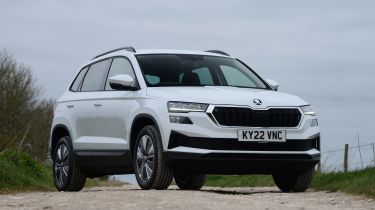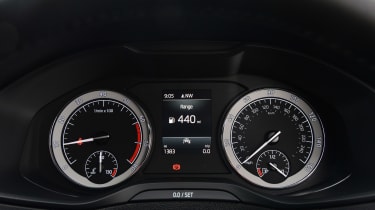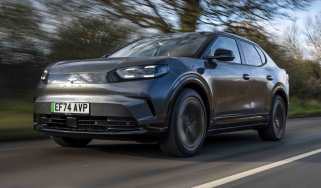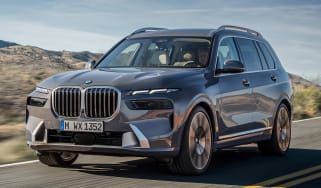Skoda Karoq - MPG, CO2 and Running Costs
The Skoda Karoq won’t break the bank, but it’s not top of the class for running costs

Aside from its relative practicality, one of the Karoq’s great attractions is the combination of fashionable SUV style with manageable running costs. Apart from a small fuel economy penalty, these cars shouldn’t cost more to run than a comparable hatchback – especially if you forgo the 4x4 models as most buyers do.
The Karoq’s petrol engines look attractive from a cost point of view, as they’re pretty efficient and cheaper to buy than the diesels you might typically associate with an SUV.
The Karoq’s engines aren’t class-leading for economy, but they’re still among the most efficient in the sector. The 1.0 TSI can return up to 48.1mpg on the WLTP combined cycle, while emitting 134g/km of CO2.
The larger 1.5 TSI’s official maximum combined cycle figures are 47.1mpg (46.2mpg with the DSG auto), with CO2 emissions from 137g/km. Our tests of this 1.5-litre unit suggest that owners should be able to get very close to those numbers in the real world, thanks to fuel-saving cylinder deactivation tech fitted to this engine, which shuts down two of its four cylinders when cruising at a constant speed.
If you really want to get the most mileage out of every gallon, the 2.0-litre TDI gets 48.9mpg, although its emissions aren’t so good at 152g/km. The thirstiest Karoq is the 4x4, the 2.0-litre TSI petrol, which only manages 36.8mpg and puts out a whopping 175g/km of CO2.
Insurance groups
You won’t pay too much for insurance with any of the Karoq models, but the lower spec versions are obviously cheaper. The smallest 1.0-litre petrol engine in SE Drive trim resides in group 12, but opting for the more powerful 2.0-litre diesel only ups the insurance rating to groups 20-21. Predictably, the 187bhp 2.0-litre TSI petrol in range-topping Sportline trim is the costliest Karoq to insure because this sits in group 25.
The Nissan Qashqai is similar to the Skoda, with entry-level models starting in group 11, while a top-of-the-range E-Power hybrid is in group 26.
Check if your car needs an MoT and view its complete history with our MoT History Checker...
Depreciation
Skoda is known for solid residual values, and the latest data suggests that the Karoq should retain between 41 to 47 per cent of its initial value over three years and 36,000 miles, depending on your chosen engine and trim level.
To get an accurate valuation on a specific model check out our valuation tool...











